Volkswagen's US SOS
The automotive media have their hands full chronicling the slow motion train wreck known as The Big 2.5. But there's another pile-up in progress. Here in the States, Volkswagen of America (VWoA) has transformed itself from a highly profitable purveyor of mesmerizing motors to a struggling brand with an ugly, overpriced and unpopular lineup. To properly parse this fall from automotive grace, let's start with the Phaeton.
The Phaeton was VW's uberluxe sedan. The concept was so brand-defiling that the normally sycophantic buff books felt free to unleash juvenile taunts about the $70k “people's car.” While the VW-badged Mercedes tank killer gave birth to the immensely lucrative Audi A8 and Bentley Continental GT, it was an epic miscalculation that revealed a startling lack of focus.
The Phaeton landed in America (with an almighty thud) in 2002. By then, the company's wandering eye had placed its U.S. operations in harm's way. The core of their product portfolio– which is to say every car other than the Phaeton– was decidedly stale. From 2001 to 2005, VWoA sales fell down some 37%, to 224,195. Even worse, the Germans didn't seem to care.
The Jetta and Golf ranges exemplify the product neglect. While the rest of the world savored the Golf MK V in 2003, the older MK IV models hung around in the U.S. until 2005. The competition grew larger, more powerful and less expensive; the centerpiece of VWoA's U.S. lineup stood still. Volksie's rep for clever and compelling advertising nosedived as well; the brand lost both its populist edge and its competitive advantage.
When the new Jetta and Golf Rabbit finally arrived (last year), the real trouble began. Whereas the previous Jetta was a tidy, micro-luxury car that epitomized the VW-Audi design language of the day, the new Jetta looks like a badly photochopped Toyota Corolla. Bizarrely, VW nailed the Jetta's design in Europe; subsidiary Skoda’s Octavia is a far more coherent proposition.
The Golf arrived in better shape, spared the Jetta's awkward C-pillar and rear end. But the company's decision to retrofit the new model with the old American Rabbit nameplate (foreshadowing Ford's Taurus recall) highlighted their creative distress. Clearly, VW's US executives were trying to hearken back to a kinder, gentler time– before Japanese transplants stuffed the U.S. car market full of highly evolved and constantly evolving small car choices.
VW has also widened the schism within its products' personalities. While the current GTI's engine makes it a terrific hoonmobile, the Rabbit's, Bug’s and Jetta's powerplants are less fun than a Form 1040. Their 2.5-liter inline five cylinder mill combines the fuel economy of a six (25mpg) with the power of a four (150hp). It's slow and buzzy AND loses the mission-critical fuel economy sweepstakes to its 35+ mpg Japanese and Korean competitors.
Diesel engines might have rescued the entire VW lineup from such ignominy. Unfortunately, the VW Group's amazing range of fast and frugal oil burners fell afoul of California emissions regulations. Next year's California-compliant Bluetec clean diesel could presage a turnaround, but VW should have found better motorvation in the meantime. Where is the magnificent Twincharger engine, with a supercharger and a turbo, putting out 150 horses while yielding 40 miles per gallon?
Meanwhile, VWoA has failed to leverage its brand equity to exploit new niches. The Touareg SUV was a start– and a lousy one at that. Sales of the unpronounceable, under-promoted, gas-hungry five-seat off-roader fell 43.7% last year. The equally unpronounceable Tiguan CUV arrives sometime next year to take on the updated CR-V, Freelander and others. Given the large temporal stretches between VW model updates and their U.S. appearance, we could be looking at a provisional respite.
As other manufacturers deliver new compact cars, VW's showrooms are bereft of four-wheeled frugality, save for ageing Jettas and Bugs, expensive Golfs and unattractive Passats. Volkswagen already makes a sub-Golf car, the Polo. That should be the new Rabbit. And if we're looking for opportunities, what happened to the VW Bus concept– a slam dunk if there ever was one?
As far as anyone knows, Volkswagen still wants to sell small cars at premium prices. News flash: to do that you must offer something premium. Standard leatherette isn’t enough. Vee Dub’s once legendary reliability is now among the worst in the U.S. market. The brand's charming design and class-leading driving dynamics are also fading into the mist of time.
Toyota has proven that you can conquer the world with focus, flexibility and, above all, speed. If VW wants to get back into the race, it must realize it IS a race. It's got to find new niches, refresh its models more quickly and get ahead of the powertrain development curve. If it wants to succeed stateside, the stodgy German brand must get its Fahrvergnügen on.
Latest Car Reviews
Read moreLatest Product Reviews
Read moreRecent Comments
- MaintenanceCosts E34 535i may be, for my money, the most desirable BMW ever built. (It's either it or the E34 M5.) Skeptical of these mods but they might be worth undoing.
- Arthur Dailey What a load of cow patties from fat cat politicians, swilling at the trough of their rich backers. Business is all for `free markets` when it benefits them. But are very quick to hold their hands out for government tax credits, tax breaks or government contracts. And business executives are unwilling to limit their power over their workers. Business executives are trained to `divide and conquer` by pitting workers against each other for raises or promotions. As for the fat cat politicians what about legislating a living wage, so workers don't have to worry about holding down multiple jobs or begging for raises? And what about actually criminally charging those who hire people who are not legally illegible to work? Remember that it is business interests who regularly lobby for greater immigration. If you are a good and fair employer, your workers will never feel the need to speak to a union. And if you are not a good employer, then hopefully 'you get the union that you deserve'.
- 28-Cars-Later Finally, something possibly maybe worth buying.
- EBFlex The simple fact is very small and cheap ICE vehicles have a range thats longer than all EVs. That is the bar that needs met. And EVs cannot meet that.Of course range matters. But that's one element of many that make EVs completely ineffective at replacing ICE vehicles.
- Wolfwagen I like the exterior mods short of the satellite dish. Put a normal interior in it and they could have sold it as some sci-fi movie trim



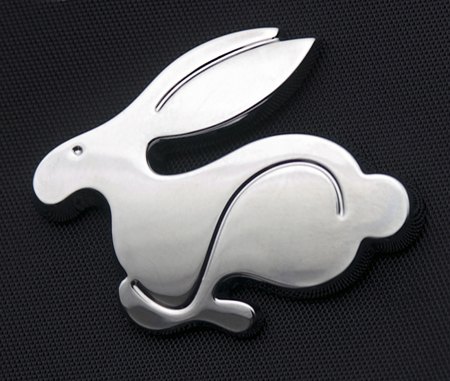
















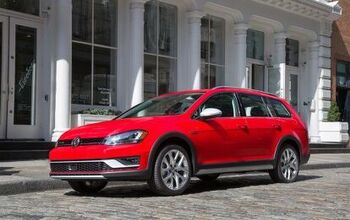
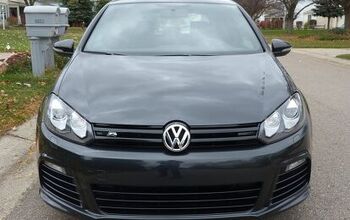
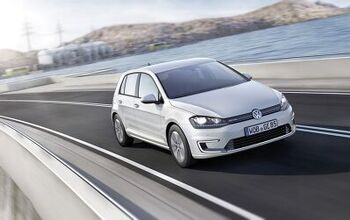
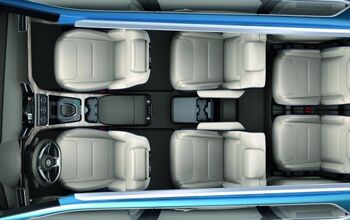



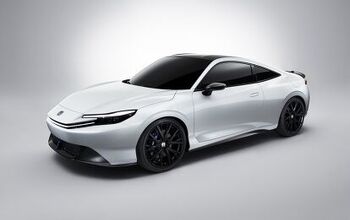






Comments
Join the conversation
not that anyone cares this late in the conversation (hears crickets somewhere....) but to answer your questions, Arragonis, VW is loosing about 2k on every Rabbit sold in the US. They gutted the price, and not the options (much) so that they could set themselves up to be a player in the Mazda, Civic market again. The Golf VI is being worked out as we speak, and has been promised to be much less expensive to build, and therefore not a born looser for the accountants. How they are going to do this and still build it in Wolfsburg has yet to seen, but that was the game plan. I've been told over and over the VAG has a US presence for no other reason than they can. They still make enough cash to drop ton of it here.
styling is subjective, so i won't waste time discussing it. What is vastly more important is the dramatic exchange rate, as a few others here have pointed out. the current exchange is approximately 1.3 $US per Euro. This means that VW manages to provide competitive cars in the USA despite a 30% pricing disadvantage. That is no small feat, and all the while VW seems to have solved past quality issues by closing the crappy production facilities in Brazil and Mexico and instead moving new model production to Wolfsburg, Brussels, and Portugal. Based on this, VW of America is not in a crisis; the company and products are better than ever. Sure, investors whine because profits are eaten by currency exchange rates. But when you and I shop for a car, would we eliminate a car model because its manufacturer didn't report huge profits last year? Note that the current Car & Driver "top 10" car list has a VW on it, but not a single Toyota. Meanwhile several new models (Passat, Toureg, Tiguan, possibly the Scirocco) are on the way, as are about half a dozen new Audi models. Hmmm... maybe VW isn't adrift after all. It just could use a little help from the foreign currency exchange desk...